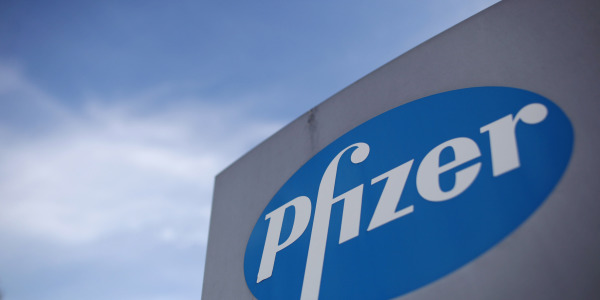US drugmaker Pfizer has confirmed the biggest pharmaceutical deal in history has been pulled after the US unveiled new measures to stop tax avoidance.
Pfizer abandoned the 160 billion US dollar (141 billion euro) deal to merge with Irish rival Allergan, the maker of Botox, following a clampdown by the US Treasury on so-called inversion deals.
In a statement to the stock exchange, the New York-based company said the deal was pulled by mutual consent.
It will pay Allergan 150 million dollars (132 million euro) to cover expenses run up during negotiations on the deal.
Ian Read, Pfizer chairman and chief executive, said: “Pfizer approached this transaction from a position of strength and viewed the potential combination as an accelerator of existing strategies.
“We remain focused on continuing to enhance the value of our innovative and established businesses.”
Pfizer said the two companies regarded the clampdown on inversions by President Barack Obama as “adverse tax law change”.
The tie-up would have been the largest inversion deal in corporate history, a tax-saving manoeuvre in which a US company reorganises in another country with a lower corporate tax rate.
The US corporate tax rate of 35% is one of the highest in the world, and compares with Ireland’s rate of 12.5%.
Allergan – which has its headquarters in Dublin but with much of its operations managed out of New Jersey in the US – said the US Treasury’s reforms will not have any material impact on the tax rates it pays.
Brent Saunders, chief executive and president, said: “While we are disappointed that the Pfizer transaction will no longer move forward, Allergan is poised to deliver strong, sustainable growth built on a set of powerful attributes.”
Allergan has about 30,000 employees and operations in about 100 countries.
The companies said in November that the merger would create an industry leader with more than 100 treatments in mid- to late-stage development.
The plan was for the combined business to carry the Pfizer name and be legally domiciled in Ireland while retaining a global operational headquarters in New York.
It would have seen Pfizer shareholders hold 56% of the enlarged group, with the rest owned by Allergan investors.
The US Treasury reforms were not taking a shot at Pfizer and Allergan specifically but aimed to limit internal corporate borrowing that shifts profits out of the United States.
President Obama on Tuesday called on the US Congress to close “one of the most insidious tax loopholes out there”, saying a corporate financial practice that shifts profits out of the US short-changes the country.
He said less tax revenue meant the government could not spend fully on schools and transportation networks, while it also hurts middle-class Americans because “that lost revenue has to be made up somewhere”.
He added: “When companies exploit loopholes like this it makes it harder to invest in the things that are going to keep America’s economy going strong for future generations.”
Anglo-Swiss drugs giant AstraZeneca fought off a £69 billion (85 billion euro) takeover bid from Pfizer in 2014, saying its bid undervalued the business.
The deal had come in for criticism in Dublin with the Sinn Fein spokesman on jobs and enterprise, Peadar Toibin, claiming it had exposed the Government’s “bargain basement corporation tax strategy”.
“Nations across the globe are becoming increasingly intolerant of the tax avoidance strategies used by multinationals,” he said.
“With the revelations this week contained in the Panama Papers, this feeling will only be enhanced.”
